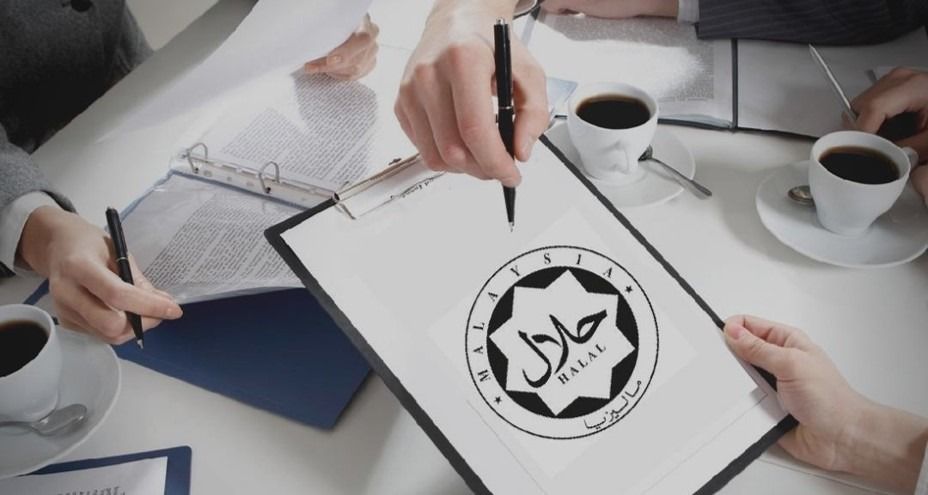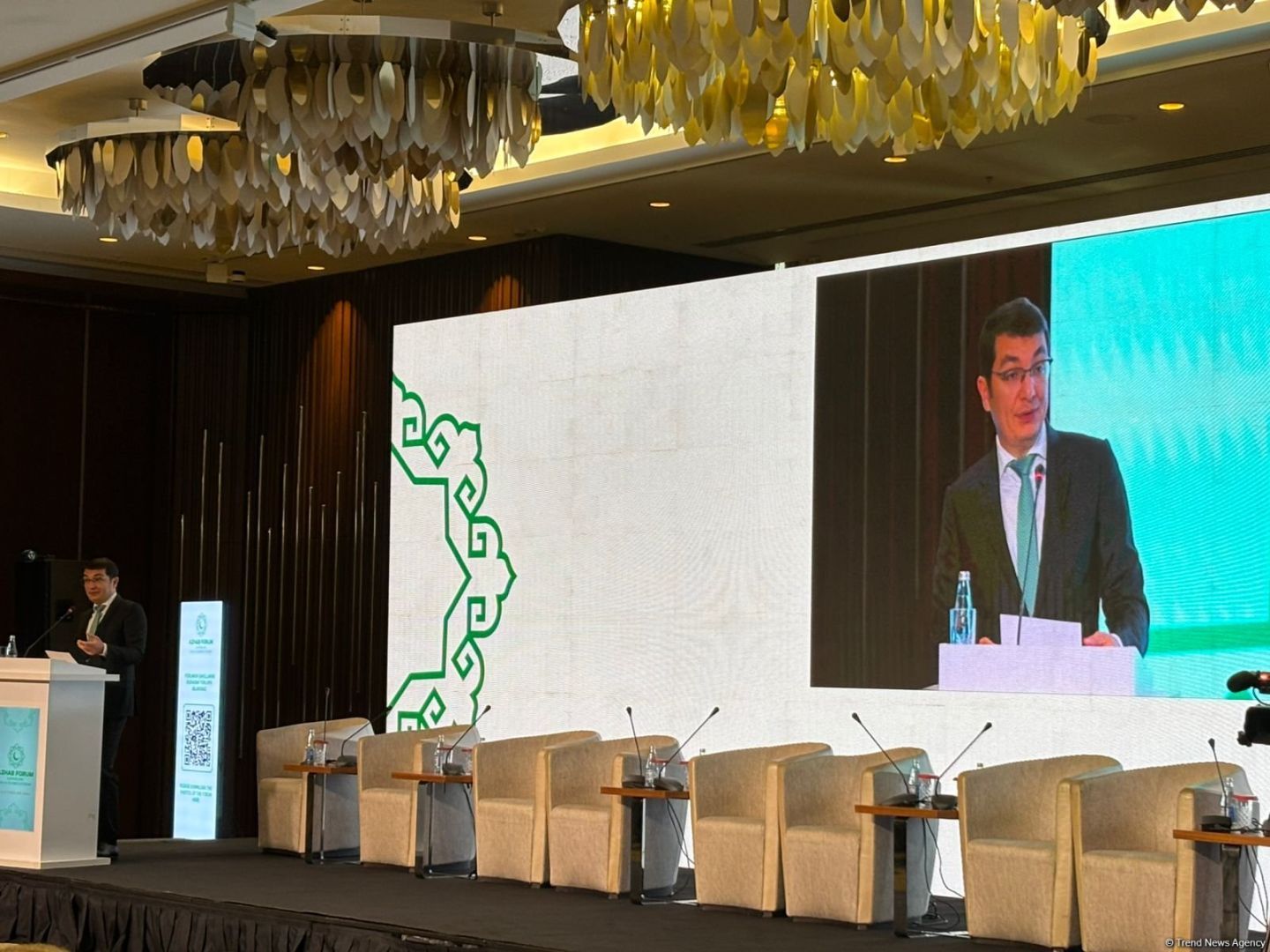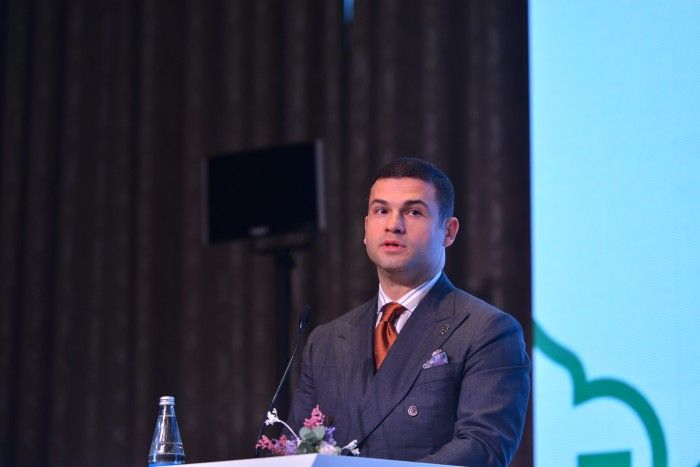AZHAB Forum highlights $3T halal economy and ethical SME growth

As the global economy undergoes rapid transformation—shaped by geopolitical tensions, trade disruptions, and growing climate-related pressures—the Azerbaijan Halal Business Forum (AZHAB Forum) has emerged as a critical platform for redefining the future of ethical and resilient economic development.
Held in Baku for the second time in 2025, the AZHAB Forum is not merely a sectoral event for halal-certified products; it is a bold attempt to reimagine the role of the halal economy in the global marketplace. With the overarching theme, “Halal industry as a source of resilience in the rapidly changing world,” the forum aligns deeply with the world’s growing appetite for business models rooted in transparency, sustainability, and values-based commerce.
By bringing together government leaders, entrepreneurs, investors, scholars, and international organizations from across OIC member states and beyond, AZHAB has positioned Azerbaijan at the crossroads of ethical trade, green innovation, and interregional cooperation.
As part of the forum’s broader objective to strengthen international partnerships within the halal economy, First Deputy Minister of Economy Elnur Aliyev used the platform to highlight Azerbaijan’s growing trade and diplomatic engagement with OIC member states, underscoring the strategic importance of the Islamic world in Azerbaijan’s economic vision.

In his remarks at the forum, Elnur Aliyev reported that trade turnover between Azerbaijan and Organization of Islamic Cooperation (OIC) countries reached approximately $6 billion in the first eight months of 2025. He emphasized that Azerbaijan is not only a strong trade partner within the OIC but also an active cultural and diplomatic actor, advancing Islamic solidarity and intercultural dialogue on the global stage.
Citing examples such as Baku’s designation as the Capital of Islamic Culture in 2009 and Nakhchivan’s in 2018, Elnur Aliyev framed Azerbaijan’s leadership in the halal sphere as part of a broader vision of multicultural cooperation and shared development.
He also expressed appreciation to the OIC and its specialized agencies for supporting the AZHAB Forum, underlining that recent economic and trade agreements signed with OIC members aim to simplify trade, enhance customs cooperation, and stimulate cross-border investments.
The AZHAB Forum was marked by two key Memorandums of Understanding (MoUs) that demonstrate the halal industry’s increasing integration with sustainability, digital transformation, and global partnership networks:
1. SMBDA and Bilişim Valley (Turkiye) signed a memorandum in support of the Baku Climate Declaration, a COP29-related initiative that promotes green entrepreneurship and environmental protection among SMEs. This move signals the growing convergence between halal principles and climate-conscious innovation, aligning Islamic economic ethics with global ESG standards.
2. A second MoU between the Malaysian Halal Development Corporation Berhad and the SME Alliance paves the way for closer cooperation in halal business development, investment promotion, and knowledge exchange. The agreement links Azerbaijan to Malaysia’s globally recognized halal ecosystem, enhancing the scalability and credibility of Azerbaijan’s own halal sector.
These agreements illustrate a broader trend: halal is evolving from a certification label into a comprehensive business philosophy, increasingly tied to green economy goals and ethical international collaboration.
"Halal is not just a label — It’s a behavior"

This evolution was echoed in the keynote speech by Orkhan Mammadov, Chairman of the Small and Medium Business Development Agency (SMBDA). Describing halal trade as a “new stage of honest entrepreneurship,” Mammadov emphasized that halal values must be reflected not just in products, but in business conduct, financial ethics, and social impact.
“If we maintain honesty, justice and transparency in our economic relations, our profits and our society will be halal,” he said.
With the global halal economy estimated at $3 trillion, Mammadov stressed the importance of embedding these values into institutional frameworks and SME ecosystems. One key step in this direction is the planned creation of the "SME Network of the Economic Cooperation Organization (ECO)," which aims to facilitate cross-border knowledge exchange and business development across ECO member states.
The AZHAB Forum’s 2025 theme is not a rhetorical flourish—it reflects the strategic rethinking of global economic systems in the face of fragmentation and volatility. The halal economy, built on principles of fairness, risk-sharing, community engagement, and sustainability, offers a compelling alternative to extractive or speculative growth models.
In an era where trade routes are shifting, supply chains are localizing, and trust is becoming a global currency, the halal sector provides:
- Stable, values-driven consumer demand across both Muslim and
non-Muslim markets
- Strong certification systems that can serve as trade
advantages
- A built-in emphasis on transparency and accountability
- Potential for resilient digital transformation and SME
empowerment
- Moral and psychological grounding for communities navigating
global uncertainty
By supporting innovation and ethical growth, the halal industry could become a cornerstone of the post-fragmentation global economy —an economy in which trust, sustainability, and inclusiveness are no longer optional, but essential.
The AZHAB Forum is quickly evolving into more than just a regional event—it is becoming a thought leadership platform at the intersection of faith, ethics, and future-ready economic strategy.
In championing the halal industry as a model for economic resilience, Azerbaijan is not only leveraging its geographic and cultural position but is also offering the world a blueprint for values-based globalization.
At a time when many question the direction of global trade and development, AZHAB’s message is clear: profit and principle can—and must—coexist.
Here we are to serve you with news right now. It does not cost much, but worth your attention.
Choose to support open, independent, quality journalism and subscribe on a monthly basis.
By subscribing to our online newspaper, you can have full digital access to all news, analysis, and much more.
You can also follow AzerNEWS on Twitter @AzerNewsAz or Facebook @AzerNewsNewspaper
Thank you!

